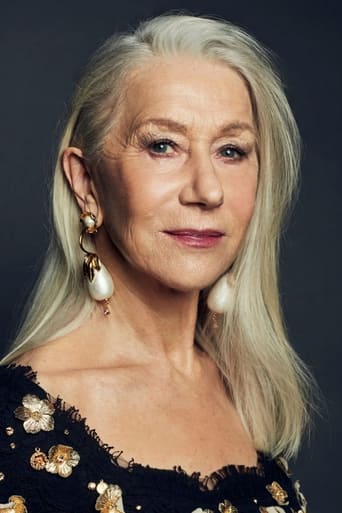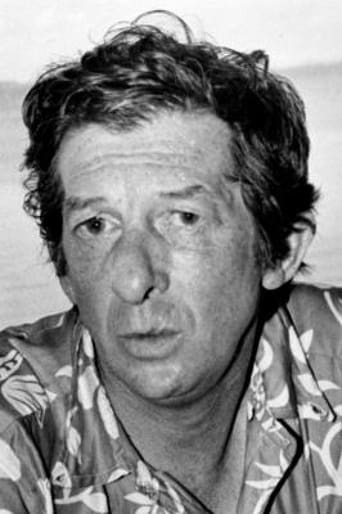Alicia
I love this movie so much
Hottoceame
The Age of Commercialism
Curapedi
I cannot think of one single thing that I would change about this film. The acting is incomparable, the directing deft, and the writing poignantly brilliant.
Fairaher
The film makes a home in your brain and the only cure is to see it again.
Woodyanders
Aging and burnt-out artist Bradley Morahan (a splendid performance by James Mason) goes to an off-shore island in order to escape from stressful everyday society. Bradley finds a new muse in the enticing and energetic form of carefree young lass Cora (a winningly luminous portrayal by a very youthful and sumptuous Helen Mirren).Director Michael Powell, working from a thoughtful and perceptive script by Peter Yeldham, astutely captures the anguish and weariness of Bradley's plight, makes the most out of the breathtaking Australian seaside locations, and explores the substantial themes concerning the necessity for passion in any kind of creative endeavor and the potential peril inherent in an older man befriending a much younger woman in a tasteful, but still frank and provocative manner. Mason and Mirren play off each other exceptionally well; they receive sturdy support from Jack MacGowran as raucous deadbeat Nat Kelly, Neva Carr-Glynn as persnickety old bat Ma Ryan, Andonia Katsaros as friendly neighbor Isabel Marley, Harold Hopkins as the horny Ted Farrell, and Frank Thring as pompous gallery owner Godfrey. Hannes Staudinger's vibrant color cinematography provides a beautifully sunny look. Peter Sculthorpe's lush score does the soothing trick. A solid and satisfying movie.
tomsview
I remember there was a lot of media hype in Australia about this movie when it was first released. I thought it was a bit of an oddity then, and it definitely is today.Bradley Morahan (James Mason), a successful Australian artist based in New York is dissatisfied with his art and his life. He heads for North Queensland and a remote island on the Great Barrier Reef. Here he meets some of the locals including a young girl, Cora (Helen Mirren), whose grandmother is an eccentric old beachcomber.Despite constant reminders from her grandmother that she is underage, Cora becomes Bradley's model and muse, restoring his belief in his art and himself. "You've given me back my eyes; you've taught me to love things again ", he exclaims at the end of the movie as their relationship blossoms, despite the 30-year age gap.Based on a novel by Norman Lindsay, the film was made about the time he died. Decades earlier, Norman Lindsay had outraged prudish Australian society with his art, which often featured well-rounded, naked nymphs cavorting with leering satyrs.But as this movie showed, society had caught up with his ideas and even surpassed them in what was termed permissible - he seemed a bit out of touch by this time, and had outlived his particular crusade against Puritanism.Unfortunately, the art on show in "Age of Consent" doesn't show much of Lindsay's influence - he was a brilliant artist. Bradley's paintings and sketches in the movie are a combination of the work of two Australian artists: John Coburn produced the strongly patterned New York paintings, and Paul Delprat did the scenes on the island in what could only be called a naïve style.The biggest connection to Lindsay's art is actually Helen Mirren, who had 'the equipment', as Michael Parkinson once described her voluptuous figure, that would have had kept Norman Lindsay happily working away at his easel for hours.The restored version of the film also features Australian composer Peter Sculthorpe's lyrical score, which was replaced with one by the more experienced British film composer, Stanley Myers. Interestingly, Myers' score seemed a more revved up version of Sculthorpe's work.It was pretty much Helen Mirren's first film, but it was a considerable way into James Mason's career. What a presence he had. The mellifluous, honey-toned voice was as hypnotic as ever, despite a half-hearted attempt at an Australian accent. The rest of the cast were mainly Australian, playing characters of varying levels of eccentricity and annoyance. Irish actor Jack MacGowran as Nat Kelly is particularly strident. The comedy in the film is definitely of the broad variety and was no funnier back in 1969 than it is now.With a particularly messy script, the film is more of a novelty than anything else, but does feature two magnetic actors at opposite ends of their careers - it's worth a look for that alone.
clevelander
Put together the worlds best actors with an Oscar winning director and what do you get? Probably worst film any of them have ever been in. Struggling for an explanation, I hone in on the awful wooden screenplay. But that's too generous. The director must get the blame for totally failing to bring out the talents of the normally skillful cast. Mason makes a go of it, apart from the unconvincing accent, but Helen Mirren appears woefully miscast as a downtrodden local girl with natural beauty and personality that is supposed to inspire the artist. She does not demonstrate enough rough edges to be believable. Helen Mirren has just stepped out of the Royal Shakespeare Company (as the cast credits insists on reminding us) and the director should have realised that, and demanded more of the actors. Mind you, I don't recall her ever playing this type of role again.
bobsgrock
Michael Powell, the famed British director best known as half of the famous Powell and Pressburger filmmaking team, was certainly in a rut in the late 1960s. After the vicious press response to his 1960 progressive serial killer thriller Peeping Tom, it was near impossible for him to make a film in England again. Nine years later, he found hope in a small production with James Mason, one of the most respected of British actors, to be shot in Australia. The story could not have been more fitting.Age of Consent tells the story of an artist disconnected from himself and his art. Having been a success, he feels aimless and almost without passion. His solution is to move to a small shack on the coast of the Great Barrier Reef and attempt to renew his interest in painting and eventually life itself. Aside from the collection of unique characters surrounding him, he finds a catalyst for retribution in Cora, a young, sweet but determined young girl who longs to escape from her non-idyllic paradise in which she is controlled by a gin-swilling, ungrateful grandmother who sees her only as the second coming of her mother, the former town prostitute.What is really great about this film, aside from the gorgeous color cinematography that captures impeccably the grandiose beauty of Australia, is the story of the reawakening of the artist. Certainly this had to inspire Powell, who was himself in need of an awakening and perhaps felt a connection with Bradley Morahan. To his credit, he directs very fine, perhaps not to the degree of perfection as earlier films like The Life and Death of Colonel Blimp, 49th Parallel or The Red Shoes, but for such a film as it is he holds it at a fine pace while also keeping our interest as we watch a man push aside all distractions in search of the return of his passion for art and life. Some feel since this is not in the pantheon of great Powell and Pressburger films that it is mostly dismissive. I disagree. Powell shows us here the need and desire artists have to create and the pains necessary to fulfill that urge. While not of historical or national importance as his earlier films, this is certainly a memorable late career achievement for Michael Powell. If you like his more famous films, this is one to check out if only to understand how an artist becomes rejuvenated.






